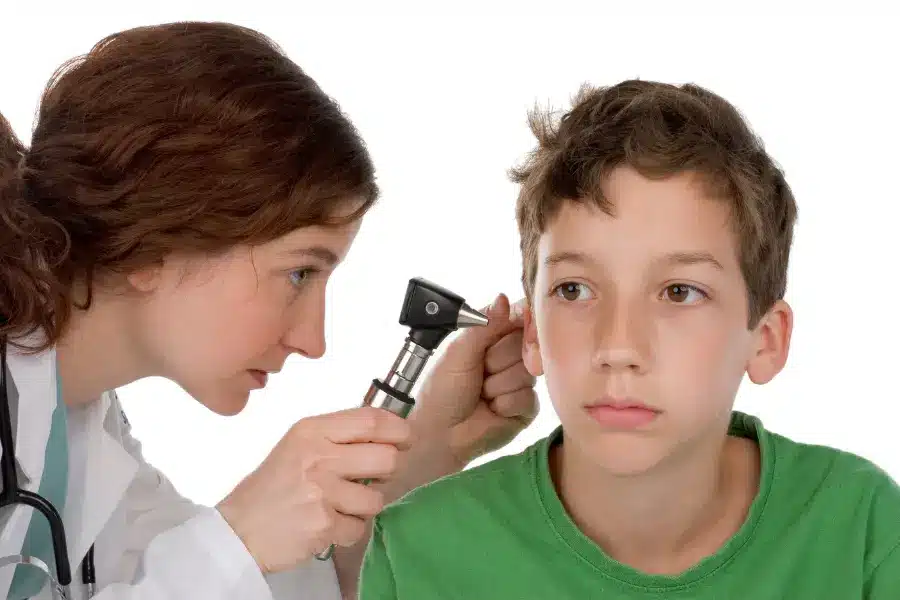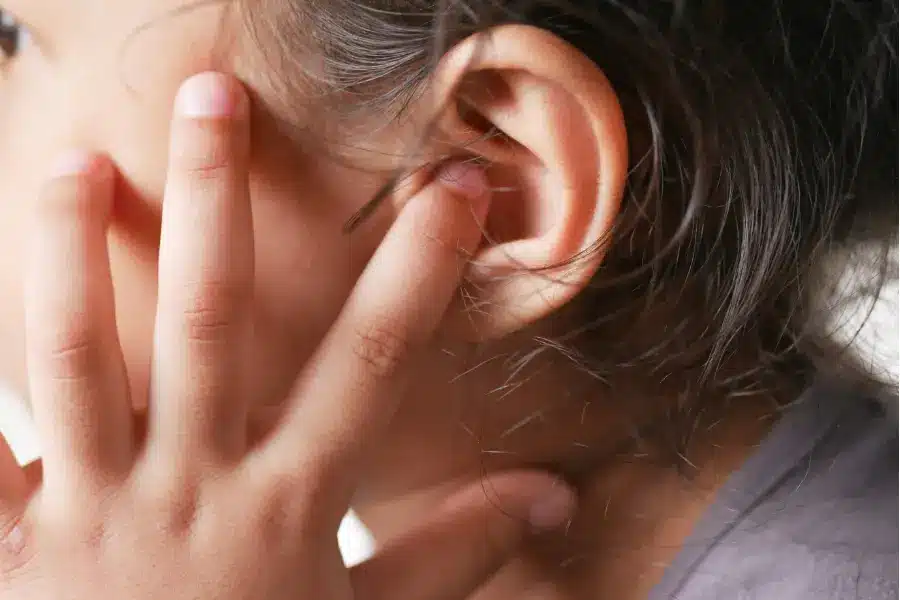Ear infections are one of the most common causes of ear pain. They often occur when bacteria or viruses enter the middle ear through the Eustachian tube. This tube connects the back of the nose to the middle ear and equalizes pressure in the ears.
Ear pain can be caused by a variety of things, from infection to wax buildup. It can be frustrating and debilitating, making it difficult to do anything. If you are experiencing ear pain, it is important to understand what may be causing it. There are a few different conditions that commonly cause this problem. Let’s take a closer look at each one.
What are the common causes of ear pain?
There are a few different conditions that commonly cause ear pain. These include:
- Ear infections
- Wax buildup
- Allergies
- Swimmers ear
- TMJ disorders
Each of these conditions can cause different symptoms. It is important to pay attention to your body and how you are feeling so that you can get the proper treatment.
Ear infections

Ear infections are one of the most common causes of ear pain. They often occur when bacteria or viruses enter the middle ear through the Eustachian tube. This tube connects the back of the nose to the middle ear and equalizes pressure in the ears.
Symptoms of an ear infection can vary, but they often include:
- Pain in the ear
- Difficulty hearing
- Drainage from the ear
- Fever
- Headache
Wax buildup
Wax buildup is another common cause of ear pain. Earwax is produced by the body to protect the ears from dirt and debris. However, sometimes too much wax can build up and block the ear canal. This can cause pain, itchiness, and difficulty hearing.
Allergies
Allergies are a common cause of ear pain, especially during seasonal changes. Allergies occur when the body overreacts to a foreign substance, such as pollen or dust. This can cause inflammation and irritation in the ears. Symptoms of allergies often include:
- Itchy eyes
- Runny nose
- Congestion
- Sore throat
- Ear pain
If you have allergies, there are a few different things that you can do to ease your symptoms. You can try over-the-counter medications, such as antihistamines or nasal sprays. You can also try home remedies, such as using a humidifier or taking a hot shower. If your symptoms are severe, you may need to see an allergist for further treatment.
Swimmers ear

Swimmers ear is an infection of the outer ear. It often occurs after water gets trapped in the ear canal. This can happen when you swim, shower, or clean your ears with cotton swabs. Symptoms of swimmers ear include:
- Pain in the ear
- Itching
- Drainage from the ear
- Difficulty hearing
TMJ disorders
TMJ disorders are a type of jaw disorder that can cause pain in the ears. This is because the TMJ, or temporomandibular joint, is located right in front of the ears. When this joint is not functioning properly, it can cause a clicking or popping sound and pain in the ears. Other symptoms of TMJ disorders include:
- Pain in the jaw
- Clicking or popping sounds when you move your jaw
- Difficulty chewing or biting
- Swelling around the jaw
Treatment for TMJ disorders often includes a combination of medication and therapies, such as relaxation techniques or jaw exercises. In some cases, surgery may be necessary.
Are there any over-the-counter medications that can help relieve the pain quickly and effectively?
There are a few different over-the-counter medications that can help relieve ear pain. These include:
- Acetaminophen
- Ibuprofen
- Aspirin
- Antihistamines
- Decongestants
It is important to read the labels on these medications carefully and follow the instructions. If you have any questions, you should ask your pharmacist for advice. In some cases, a prescription medication may be necessary.
What are some home remedies that can help relieve ear pain?
There are a few different home remedies that can help relieve ear pain. These include:
- Taking ibuprofen or another over-the-counter pain reliever
- Applying a warm compress to the affected ear
- Taking a hot shower or bath
- Using a humidifier
What are some tips for preventing ear pain in the future?
There are a few different things that you can do to prevent ear pain in the future. For allergies, you can try to avoid triggers, such as dust or pollen. You can also take steps to prevent a swimmer’s ear, such as drying your ears after swimming or showering. For TMJ disorders, you can try to avoid clenching or grinding your teeth and eat soft foods.
If you are experiencing ear pain, it is important to see a doctor so that they can determine the cause and start you on the proper treatment. There are a few things that you can do at home to ease your symptoms, but in some cases, a prescription medication may be necessary.
By taking steps to prevent ear pain in the future and getting prompt treatment when it does occur, you can help keep your ears healthy and pain-free.
When should you seek medical attention for your ear pain?
If you are experiencing severe ear pain, drainage from your ear, fever, or difficulty hearing, you should see a doctor as soon as possible. These could be signs of an infection or another serious problem. If you have any questions or concerns about your ear pain, you should also see a doctor so that they can give you the proper diagnosis and treatment.
What can you expect from a doctor’s visit if you are experiencing ear pain?
Your doctor will likely ask you about your symptoms and medical history. They may also perform a physical examination. In some cases, they may need to order tests, such as a CT scan or MRI, to get a better look at your ears. Based on their findings, they will be able to determine the cause of your pain and start you on the appropriate treatment.
Ear pain can be caused by a variety of different things. In most cases, it is not serious and can be treated at home. However, if you are experiencing severe pain, drainage from your ear, or difficulty hearing, you should see a doctor so that they can rule out any serious problems. With the proper diagnosis and treatment, you can quickly find relief from your ear pain.
You can find and book the best ENT Specialist through Marham. Or you can call at Marham helpline: 0311-1222398 and schedule your appointment.
FAQs
What are the best ear drops for ear pain?
Antipyrine with benzocaine otic is used to treat middle ear infections that cause ear discomfort and edema.
Is Ginger good for ear infections?
Ginger contains anti-inflammatory qualities that can help relieve earache pain. Wrap the outer ear canal with ginger juice or filtered oil that has been warmed with ginger in it.
How long does ear pain last?
Most ear infections resolve within three days, however, symptoms might continue up to a week.







